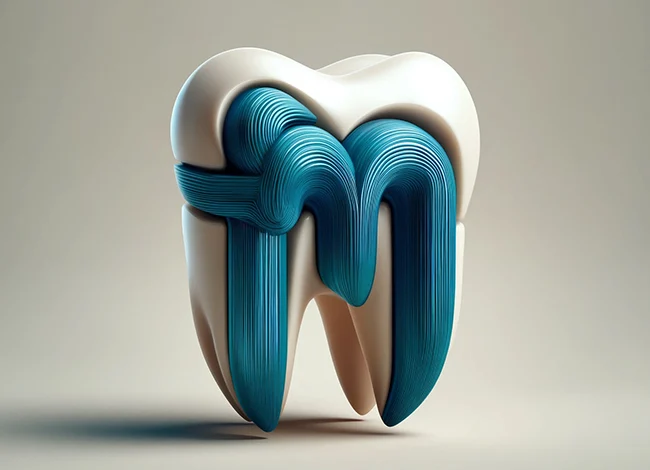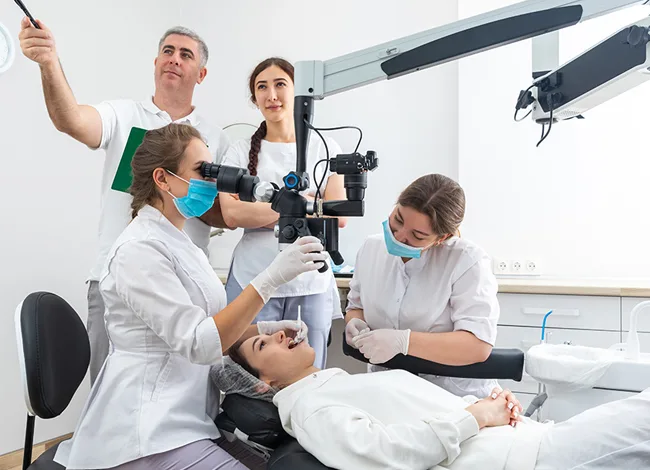Table Of Contents
Being a Dentist in Europe: Uncover Vital Insights
Being an Expert Dentist in Europe is a highly respected and essential profession. Dentists not only ensure the health and well-being of their patients but also contribute significantly to the overall healthcare system. The field of dentistry is evolving rapidly in Europe, with advances in technology, specialized education, and healthcare systems playing key roles in shaping the profession. This article provides an in-depth exploration of the role of a dentist in Europe, the educational requirements, specialized fields, and the impact of technology on modern dentistry.
The Educational Pathway for Dentists in Europe
The journey to becoming a dentist in Europe is a rigorous and highly specialized one. Aspiring dentists must undergo extensive training to meet the high standards of European dental practice. Being an Expert Dentist in Europe requires completing a university degree, usually lasting five to six years, depending on the country. This includes both theoretical studies and hands-on practical experience.
During their university education, students are taught anatomy, physiology, and oral health, along with advanced courses in orthodontics, periodontology, and prosthodontics. Practical experience is essential in developing clinical skills, and students must complete several hours of supervised work in dental clinics or teaching hospitals.
In addition to the university degree, dentists must pass national licensing exams to practice legally. These exams ensure that dentists meet the required competencies and are well-versed in modern dentistry techniques. Moreover, in many European countries, dentists must participate in continuing education programs to stay updated with the latest advancements in the field. The comprehensive and high-standard educational journey is crucial in defining what it means to be a skilled dentist in Europe.
Responsibilities of Dentists Across Europe
The responsibilities of dentists in Europe extend far beyond routine check-ups and cavity fillings. Being a Dentist in Europe involves a wide range of roles and duties aimed at maintaining and improving the oral health of individuals. Dentists are responsible for diagnosing and treating various oral diseases and conditions, as well as preventing potential future issues.
One of the primary responsibilities of a dentist is preventive care. This includes regular cleanings, examinations, and education on oral hygiene. Dentists advise patients on proper brushing and flossing techniques and may recommend additional preventive treatments such as fluoride applications or dental sealants. Preventive care helps reduce the occurrence of gum disease, tooth decay, and other oral health issues.
Additionally, dentists in Europe are trained to perform more complex procedures such as root canals, tooth extractions, and the placement of dental implants. They also offer cosmetic dentistry services, including teeth whitening, veneers, and orthodontic treatments to enhance patients’ smiles. Emergency care is another crucial aspect of dentistry, as dentists often treat patients with sudden dental problems such as tooth fractures, infections, or severe pain.
Specializations Within Dentistry in Europe
Dentists in Europe have the option to pursue specialized fields within dentistry, further expanding their expertise and scope of practice. Specialization is particularly important for handling complex cases and providing focused care to patients. The process of Being an Expert Dentist in Europe often involves choosing a specific area of interest and undertaking further education and training.
Some of the most common specializations include:
Orthodontics – Specialists in this field focus on correcting misaligned teeth and jaws. They often use braces, clear aligners, and other orthodontic devices to realign teeth and improve bite functionality.
Periodontics – This specialization deals with the prevention, diagnosis, and treatment of gum diseases. Periodontists also focus on the structures supporting the teeth and perform procedures such as gum grafts and implant placements.
Prosthodontics – Prosthodontists specialize in restoring and replacing missing or damaged teeth. They create and fit crowns, bridges, dentures, and implants to help patients regain their dental function and appearance.
Endodontics – Endodontists are experts in treating issues related to the dental pulp and root canals. They perform complex root canal therapies to save teeth from extraction and relieve pain caused by infected tooth pulp.
Pediatric Dentistry – Pediatric dentists specialize in the dental care of children, ensuring that young patients maintain healthy teeth and gums as they grow. They provide preventive treatments and educate children and parents on proper oral hygiene habits.
Each of these specializations requires additional training, ensuring that European dentists are highly skilled in addressing specific dental conditions. The availability of these specialized services helps enhance the overall standard of care for patients across Europe.
The Role of Dentists in the European Healthcare System
The integration of dentistry into the broader European healthcare system plays a crucial role in maintaining public health. Being an Expert Dentist in Europe means participating in both private and public healthcare systems, ensuring that all individuals have access to oral healthcare services. Many European countries include dental care as part of their national healthcare programs, making routine check-ups and treatments affordable for everyone.
In countries like the United Kingdom, dentistry is part of the National Health Service (NHS), providing essential dental services at low or no cost. Similarly, in France and Germany, dental care is included in state-run insurance schemes, covering a wide range of procedures, from basic cleanings to more complex oral surgeries.
In addition to providing individual care, dentists also contribute to public health initiatives aimed at preventing widespread oral diseases. For example, national campaigns often promote regular dental visits, the use of fluoride toothpaste, and proper oral hygiene practices to reduce the incidence of tooth decay and gum disease.
Moreover, many European dentists are involved in research and development, advancing the field of dentistry through innovative techniques and treatments. Their work not only enhances patient care but also contributes to the global body of knowledge in dental science.
The Impact of Technology on Dentistry in Europe
Advancements in technology have significantly impacted the practice of dentistry in Europe, improving both diagnostic capabilities and treatment outcomes. Being a Dentist in Europe today involves staying up-to-date with the latest technological innovations that enhance patient care.
One of the most significant developments is the widespread use of digital imaging technologies. Digital X-rays and 3D scans allow dentists to view detailed images of a patient’s teeth, gums, and jaw, aiding in accurate diagnosis and treatment planning. This reduces the need for invasive exploratory procedures and allows for more precise and minimally invasive treatments.
Another technological advancement is the use of CAD/CAM (Computer-Aided Design/Computer-Aided Manufacturing) systems. These systems enable dentists to create precise dental restorations, such as crowns, bridges, and veneers, in a matter of hours. Patients benefit from same-day treatment and more comfortable procedures, as there is no need for temporary restorations or multiple appointments.
Laser dentistry is also becoming increasingly popular in Europe. Lasers are used for a variety of dental procedures, including gum surgery, cavity detection, and teeth whitening. This technology minimizes discomfort, reduces recovery times, and improves treatment accuracy.
The introduction of 3D printing in dentistry is revolutionizing how dental appliances and prosthetics are created. Dentists can now design and print custom-fit aligners, crowns, and dentures using 3D printers, ensuring a perfect fit and enhancing the patient’s comfort.
Finally, teledentistry is gaining traction across Europe, especially in rural areas where access to dental care may be limited. Teledentistry allows patients to consult with dentists remotely, discuss symptoms, and receive advice without visiting the clinic. This has proven particularly useful during the COVID-19 pandemic, where minimizing in-person contact has been crucial.
The integration of these technologies has transformed the dental experience for both dentists and patients, making dentistry more efficient, precise, and accessible across Europe.
Challenges and Opportunities for Dentists in Europe
While Being an Expert Dentist in Europe comes with many benefits, there are also challenges that dentists face in their profession. One of the main challenges is the increasing demand for dental services in an aging population. As people live longer, they require more comprehensive and continuous dental care, which puts additional pressure on the healthcare system and private practices.
Moreover, the cost of maintaining and updating dental equipment, especially with the rapid advancement of technology, can be significant. Dentists must continually invest in new equipment and training to keep up with industry standards and offer the best possible care to their patients.
On the other hand, dentists in Europe are presented with numerous opportunities. The growing interest in cosmetic dentistry, for example, has created a new demand for services like teeth whitening, veneers, and orthodontic treatments. This allows dentists to expand their practices and cater to a broader range of patients seeking both health-related and aesthetic treatments.
Furthermore, the trend towards preventive care is reshaping how dentistry is practiced. Patients are becoming more aware of the importance of regular dental visits and oral hygiene, leading to an increased focus on preventing dental problems before they arise.
Ultimately, the profession of Being a Dentist in Europe is dynamic, with ongoing advancements in technology, evolving healthcare systems, and a growing focus on holistic oral health.
Frequently Asked Questions
What qualifications are needed to become a dentist in Europe?
In Europe, dentists typically need a five- to six-year university degree in dentistry, followed by passing national licensing exams to practice.
How does preventive dental care impact overall health?
Preventive dental care helps avoid oral diseases, which can lead to more serious health issues like cardiovascular problems and infections.
What are the most common dental specializations in Europe?
Common specializations include orthodontics, periodontics, prosthodontics, endodontics, and pediatric dentistry.
How has technology improved dental care in Europe?
Technology like digital X-rays, CAD/CAM, and 3D printing has made dental care more precise, efficient, and patient-friendly.
Is dental care covered under public healthcare systems in Europe?
In many European countries, dental care is integrated into public healthcare systems, offering affordable or free essential dental treatments.
How long does it take to become a specialized dentist?
After completing a general dental degree, additional training for specialization can take between two to three years, depending on the field.
What role do dentists play in public health?
Dentists contribute to public health by promoting preventive care, diagnosing oral diseases early, and educating patients on oral hygiene.
What is the role of cosmetic dentistry in Europe?
Cosmetic dentistry is popular in Europe, focusing on improving the appearance of teeth through treatments like veneers, whitening, and aligners.
What are the challenges of being a dentist in Europe?
Challenges include keeping up with rapidly advancing technology, managing the high demand for dental services, and handling complex dental procedures.
How are dental emergencies handled in Europe?
Most dentists offer emergency care services for sudden issues like tooth fractures, infections, and severe pain, with quick intervention being crucial.
Cover-up Your Dental Clinics Social Media

Agency Experience
Customer Satisfaction
Web, Corporate Identity, Video
Average Response Time



